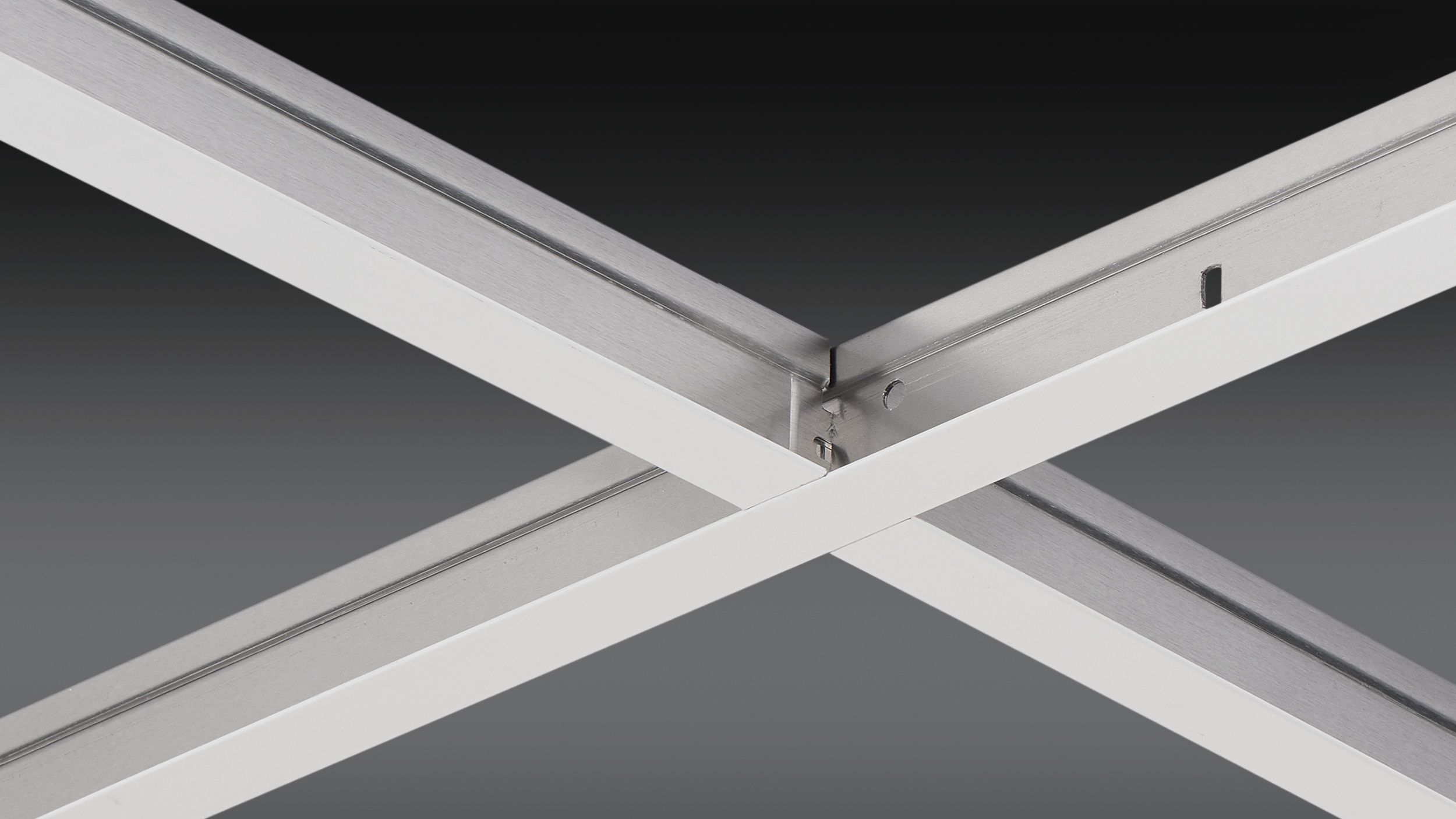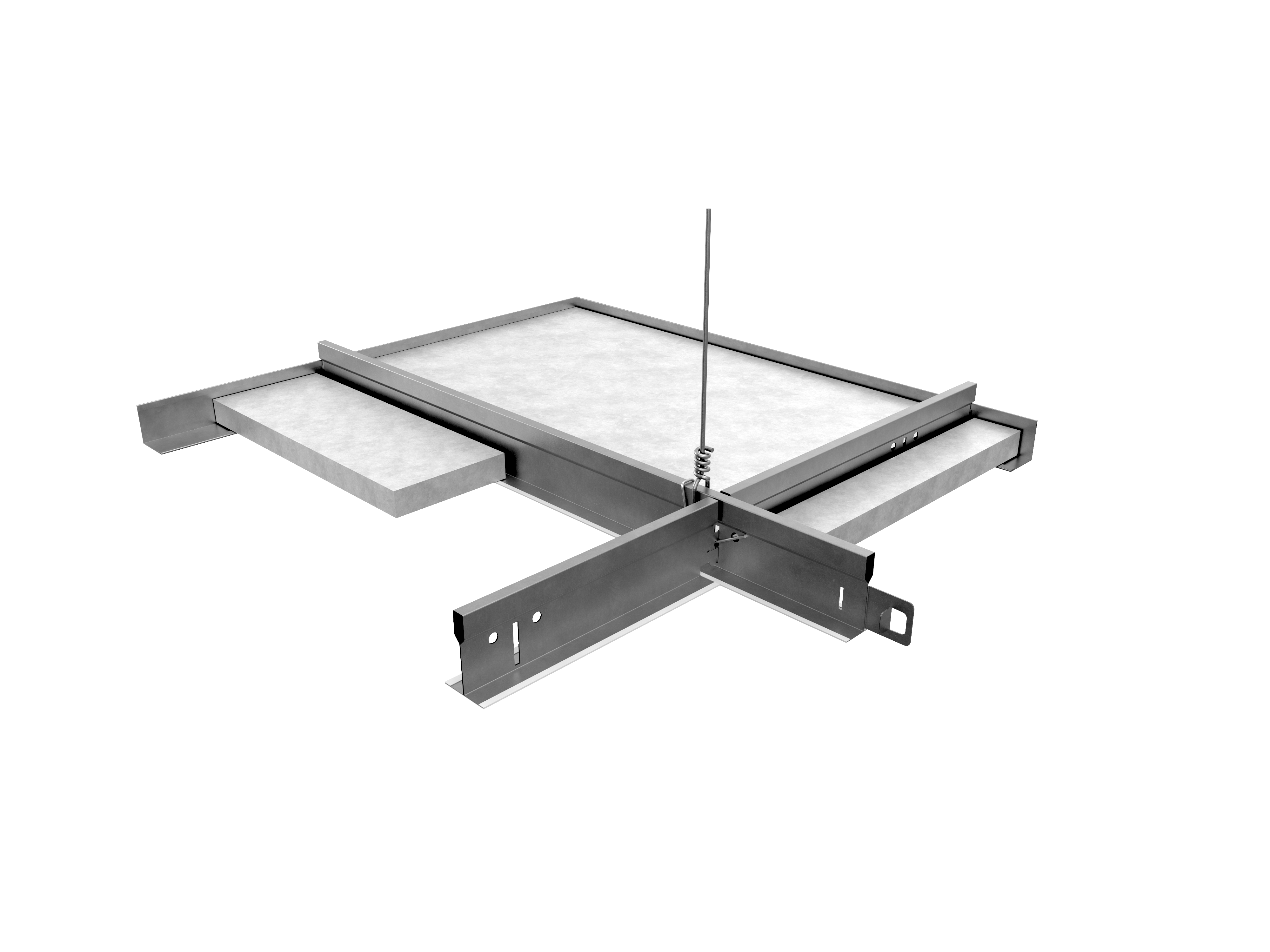Chicago Metallic® 830 All Aluminum 15/
Chicago Metallic® 830 All Aluminum 15/16" Exposed grid ceiling system uses a light-duty design and is created using 100% aluminum, giving the acoustical grid system increased corrosion resistance in harsh interior environments. Application areas include food and drug preparation, laboratories, or laundries.
1/3
Application
- Performance
- High Humidity Areas
- Product Type
- Grid suspension systems
- Sectors
- Restaurants
- GREENGUARD Gold
About Chicago Metallic® 830 All Aluminum 15/
Chicago Metallic® 830 All Aluminum 15/16" exposed grid ceiling system uses a light-duty design and is produced with 100% aluminum, giving the grid system increased corrosion resistance in harsh interior environments. Featuring demountable hook-end cross tees, this grid system assembles quickly and easily. As a standard, Chicago Metallic™ grid systems are third party certified to meet ASTM requirements and are listed with ICCES Evaluation Services, reference report ESR-2631 for more details.
- All aluminum substrate delivers excellent corrosion resistance
- Hook-end demountable cross tee's allow easy installation
- Backed by a 40 year warranty
- Up to 78% recycled content
- UL GREENGUARD Gold certified for low VOC emissions.
- Suitable for seismic zones A-C.
Certifications
 UL GREENGUARD Gold
UL GREENGUARD Gold Environmental Product Declaration
Environmental Product Declaration
Documents

Chicago Metallic 830 All Aluminum 15/
Product and technical information for Chicago Metallic 830 All Aluminum 15/16" grid

Chicago Metallic 830 All Aluminum 15/
Specification document for Chicago Metallic 830 All Aluminum 15/16" grid

Chicago Metallic 830 All Aluminum 15/
Product and technical information for Chicago Metallic 830 All Aluminum 15/16" grid (French)

Chicago Metallic 830 All Aluminum 15/
Specification document for Chicago Metallic 830 All Aluminum15/16" grid (CDN)

Rockfon 40 Year Suspension System Limited Warranty
Grid Warranty
FAQ Block For Grid
It is a ceiling hung below the structural ceiling for room acoustics and aesthetics, where tiles and panels are housed in the ceiling grid. An acoustical ceiling grid has various benefits that include controlling sound, which is measured by the Noise Reduction Coefficient (NRC). High-performance acoustic panels from Rockfon offer the NRC needed to create healthy acoustic environments. Ceiling tile grid systems also hide various building systems while still allowing access for maintenance.
Ceiling grids used with tiles and panels are a cost-effective ceiling solution. Contact us to speak with a Rockfon representative to learn more about suspended ceiling cost.
Depending on the grid product, Rockfon Chicago Metallic ceiling grids can be used in interior & exterior applications. Review the datasheet for specific products to determine exact application areas.
Before installing tiles into a grid system, always ensure your installation is square and all components are installed correctly. Questions? Contact our technical services team and a Rockfon team member will address your questions.
We’re happy to work with you to find where to buy Rockfon products. Get in touch with us.
Stone wool acoustic ceiling tiles & panels have an inherently high Noise Reduction Coefficient due to the structure and composition of stone wool. When installed in a suspended ceiling grid, these tile & panels support a healthy interior acoustic environment. Metal ceiling solutions in interior applications can achieve a high-NRC through perforations or with the Rockfon Acoutex™ acoustic backer applied. An environment with the right acoustic performance products can improve speech intelligibility and overall indoor environmental quality (IEQ) to support human health and well-being.
Every Rockfon tile and pile has its compatible grid type. Review the stone wool & metal product datasheets for the full listing of grid compatibility.
Our acoustic ceiling tiles are available in a wide variety of edge types. These ceiling tile types include square lay-in, square or angled tegular/reveal, and concealed or semi-concealed edges.
Coupled with different suspension systems, the edge design can help to hide the grid with tightly fitted panels, shadow the grid with beveled recesses, conceal the grid with panels that seem to float under it, or emphasize the grid with square or angled tegular/reveal designs.













